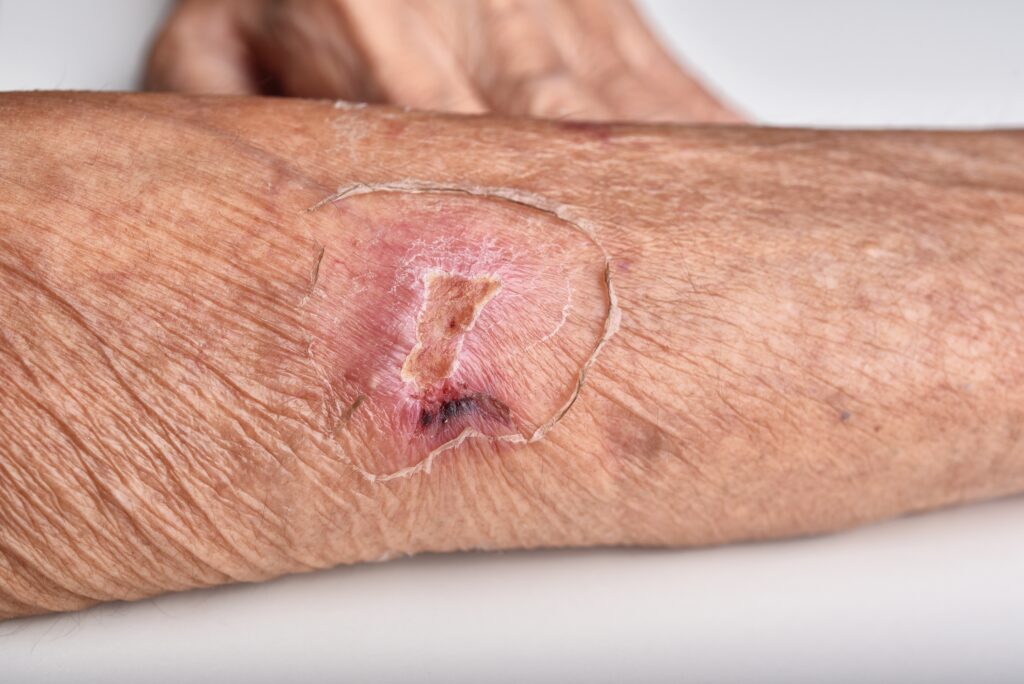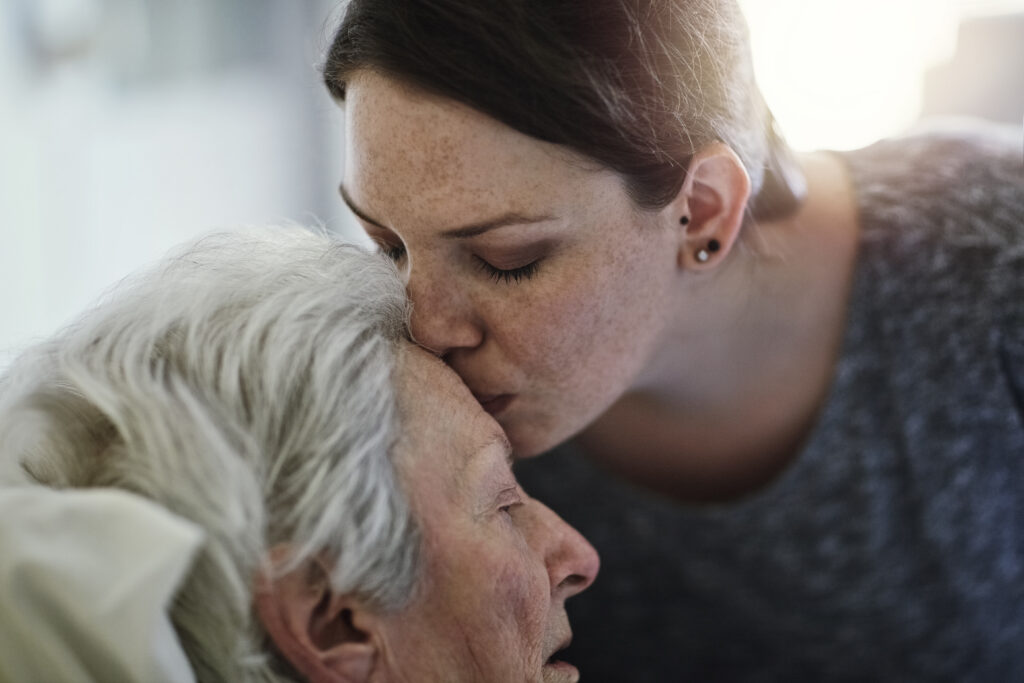There are fewer things scarier than getting older, but watching your parents get older is definitely one of them.
After all, we have always known them as strong and independent; as our caregivers. They are the people we turn to when we are feeling scared, or worried, or in need of help. So what happens when the tables are turned, as they inevitably are, and it is our turn to care for them?
How are they going to react to you suggesting they visit a doctor, telling them to take things easy, or asking if they need help with anything?
Will you even be able to recognise the signs that they need help in the first place? And what will you do if they refuse to accept that help?
Obviously, the effects of getting older don’t happen overnight, and so it will probably be an accumulation of the changes you notice in your parents’ habits and behaviours that will alert you that maybe the time has come to suggest some help.
Indications or signs that your parent might need help are:
A Lack Of Interest

Has your dad always been a keen gardener? Does your mum always meet her friends in town for a coffee on a Wednesday? Do they both always attend church and participate keenly in social events?
If there are certain hobbies and interests that your parents have always enjoyed, and this suddenly changes, it could point to an underlying problem.
We all have ‘off’ days, regardless of age, and there may well be times when we simply aren’t in the mood to do something they would normally enjoy. But if they are regularly lacking the energy and enthusiasm for the things they have previously always looked forward to, it might be time to offer some help.
Perhaps these changes are down to your parents starting to feel concerns about driving or taking public transport, and you could offer a lift or accompany them on occasion, or perhaps there is an unaddressed medical issue and you can gently suggest a trip to their GP.
Changes In Personal Hygiene
If you notice that one or both of your parents is no longer taking care of themselves in the same way they used to, it could be down to a number of reasons.
Maybe your dad’s worn that same shirt the last three times you’ve seen him because he’s struggling after losing your mum, or perhaps your mum hasn’t had her hair done recently because there are financial issues.
Either way, make having a conversation about what you have noticed your first step. This can then lead to a visit to a doctor if needed, or looking at the household budget. Sometimes a change in personal hygiene habits can be an early sign of depression or Alzheimers, so it’s important that these changes are recognised and discussed.
Forgetfulness
It’s natural for everyone to be forgetful at times, but if you are noticing that your parents are increasingly forgetting to pay bills or keep appointments, or are repeating themselves often and putting things in unusual places, it might be time to seek some help.
Speaking to your parent’s doctor about a medical and cognitive evaluation would be helpful in determining whether it could be the onset of dementia or other medical issues.
As with most things, it is better to diagnose conditions like this early so it is worth bringing this up with a medical professional as soon as you start to notice any symptoms.
Trouble Getting About
It is to be expected that as we age we are going to be less steady on our feet, and maybe you have noticed recently that one of your parents is having trouble walking or getting up from their chair, or that the stairs are becoming increasingly difficult. Age-related issues such as muscle or joint pain make these problems fairly common, so talk to your parents about seeing their GP in case there are medication options that could help.
It might be a case of discussing with your parents the possibility of making modifications to the home or implementing the use of a walker or cane.
Lack Of Appetite
Have you noticed that your parents are losing weight, or aren’t cooking proper meals? Is the fridge full of food that has gone out of date before it can be consumed? This can often be the case if you have sadly lost one of your parents, and the other doesn’t feel that there is much point in preparing food for one.
Maybe they weren’t the ones who normally did the cooking, or they are struggling with reading recipes, using appliances or getting to the shops. It is worth persuading your parents to see a GP; maybe there is an issue with taste and smell that needs to be checked out.
You can also help by checking that the cupboards and fridge are stocked with quick and healthy options and that they are staying hydrated – particularly in hot weather. Employing a meal delivery service, or even preparing meals yourself might also be an option if that is something they are open to.
The Appearance Of Injuries

If you are suddenly noticing minor injuries such as bruises and scratches when you visit your parents, it could be a sign that your loved one is having trouble taking care of themselves.
It could be that the house needs a bit of a revamp in order to make it easier for them to get around without hurting themselves. If it’s a case of them tripping or falling often then a visit to the doctor should be encouraged to check that there isn’t an underlying medical issue.
A Change In Personality
Seeing personality changes in someone you love as they grow older could be an early warning sign of conditions such as Alzheimer’s or dementia. Are your parents displaying odd behaviours such as accusing others of saying and doing things, especially in the evenings? Late-day confusion or, ‘sundowning’, as it is known can be one explanation and it is thought that not enough exposure to natural sunlight could be a contributing factor. As with any changes in an older person’s physical or cognitive health, a visit to the GP is recommended.
Of course, it’s all very well and good to recognise some of these signs and talk to your parents about your concerns for them, but what can you do if they refuse help?
Maybe they think you are worrying unnecessarily, or don’t want to burden you with their health issues. It could be that they are worried about their own health, especially if they are aware that they’re becoming more forgetful or unsteady on their feet and are avoiding the situation – and the doctor, under the misguided idea that ‘ignorance is bliss’.
Discuss Options Early
In an ideal world subjects such as care homes or in-home help etc would be discussed within families far in advance of the services actually being needed.
A huge factor in people refusing help as they get older can be the fear of losing independence, whereas if they have already made decisions about what measures they want put in place when they become older they can retain those feelings of being in control of their own lives.
Speak To A Professional
If your parents won’t speak to you about their health concerns then try to convince them to speak to a professional – either an agency that specifically deals with the concerns of more senior citizens, or even their GP.
If they refuse and you are really concerned about their well-being, you could speak to these organisations yourself and see what advice they offer.
Don’t Give Up

Although it can be frustrating when someone is refusing the help you think they so badly need, don’t forget that it’s not half as frustrating as needing help and feeling too proud or stubborn to ask for it! Most parents will be touched by your concern and all too happy to put their minds at rest by accepting your suggestions, but for those who don’t, all is not lost.
Unless you feel that there is a serious and immediate danger to their health, your best bet is to be patient and kind, make gentle suggestions, and help out where you can.
Getting Your Parents Help
Getting older can be a daunting prospect, and watching our parents age can be even more difficult. Fortunately, Care in Kent can help, we offer tailored solutions for your loved one’s needs including occasional companion care or homecare when you need that extra support.
Care in Kent can help your parents to maintain their independence and provide peace of mind to you and your family.
If you think you might need help with your parents care please get in touch, we are always happy to discuss your needs and our carers are dedicated to providing compassionate and professional care to your loved ones.


